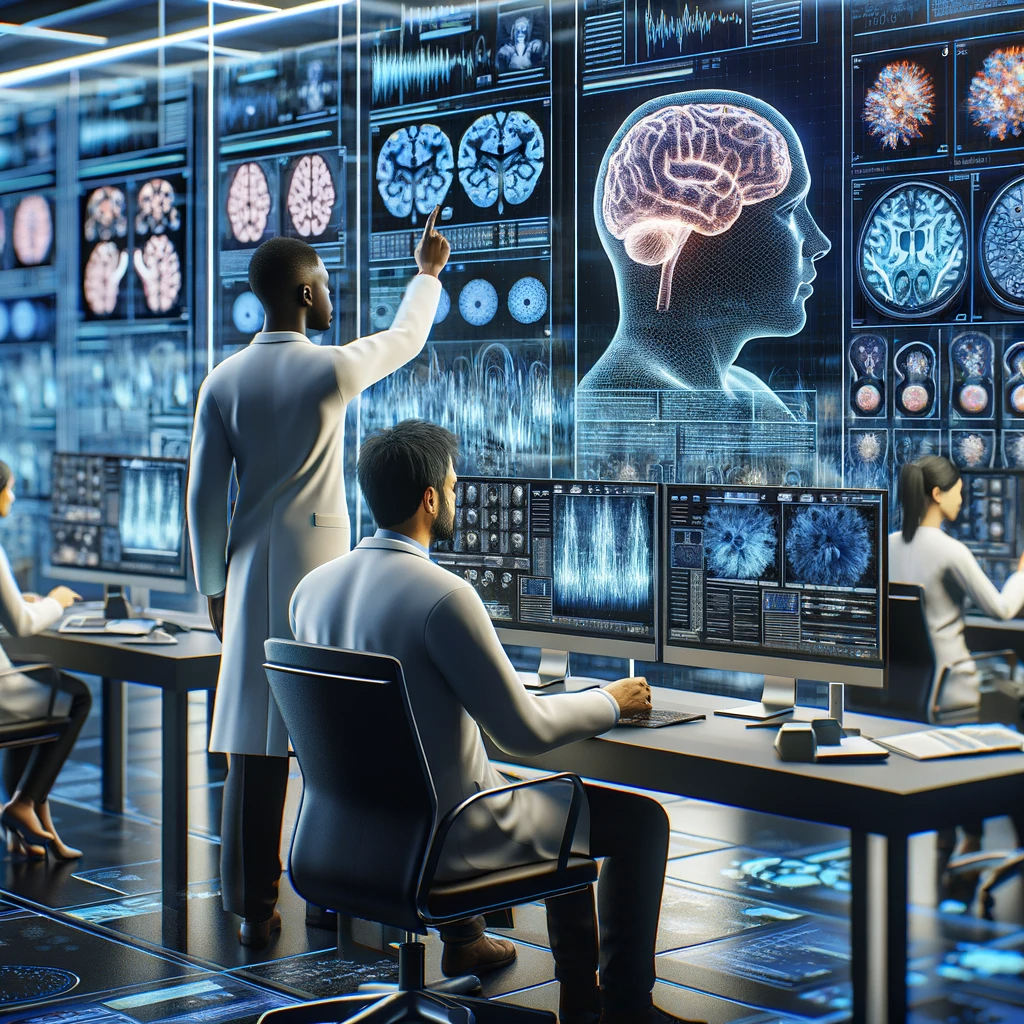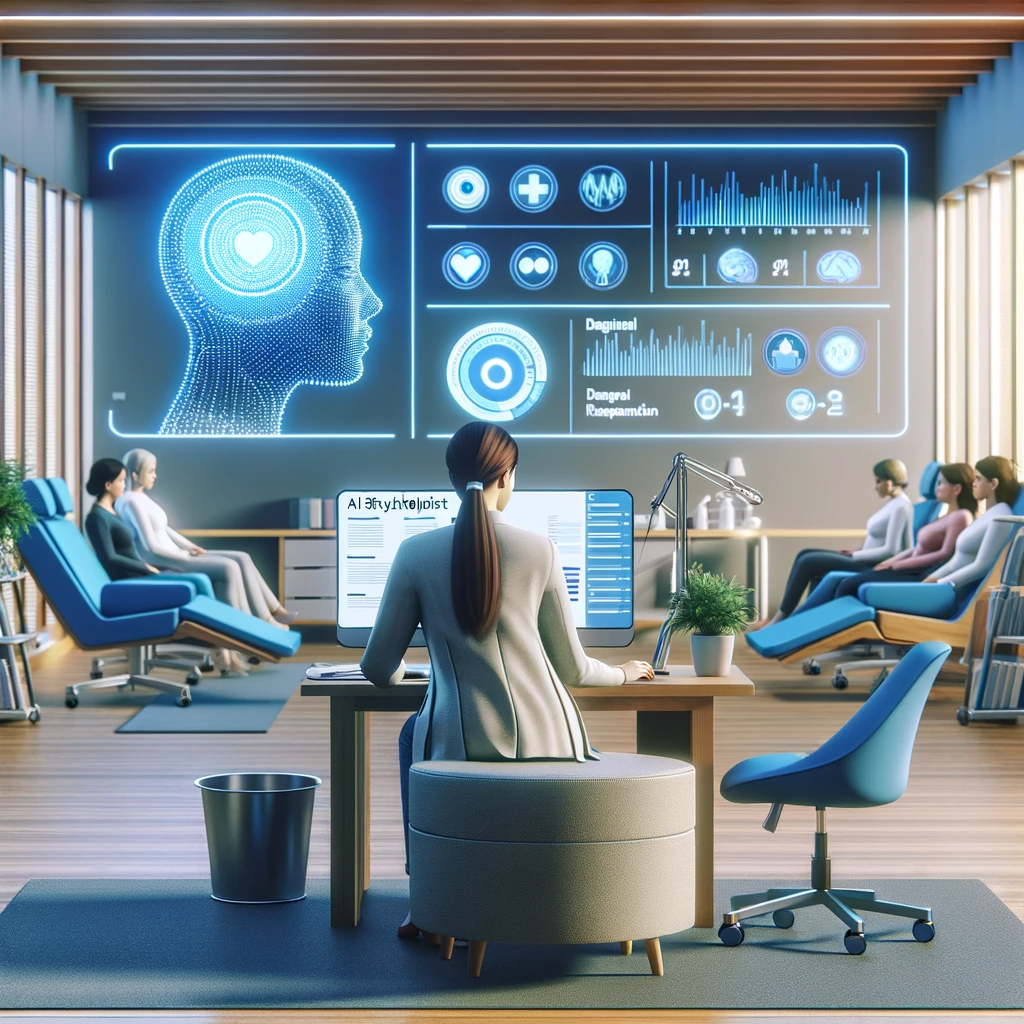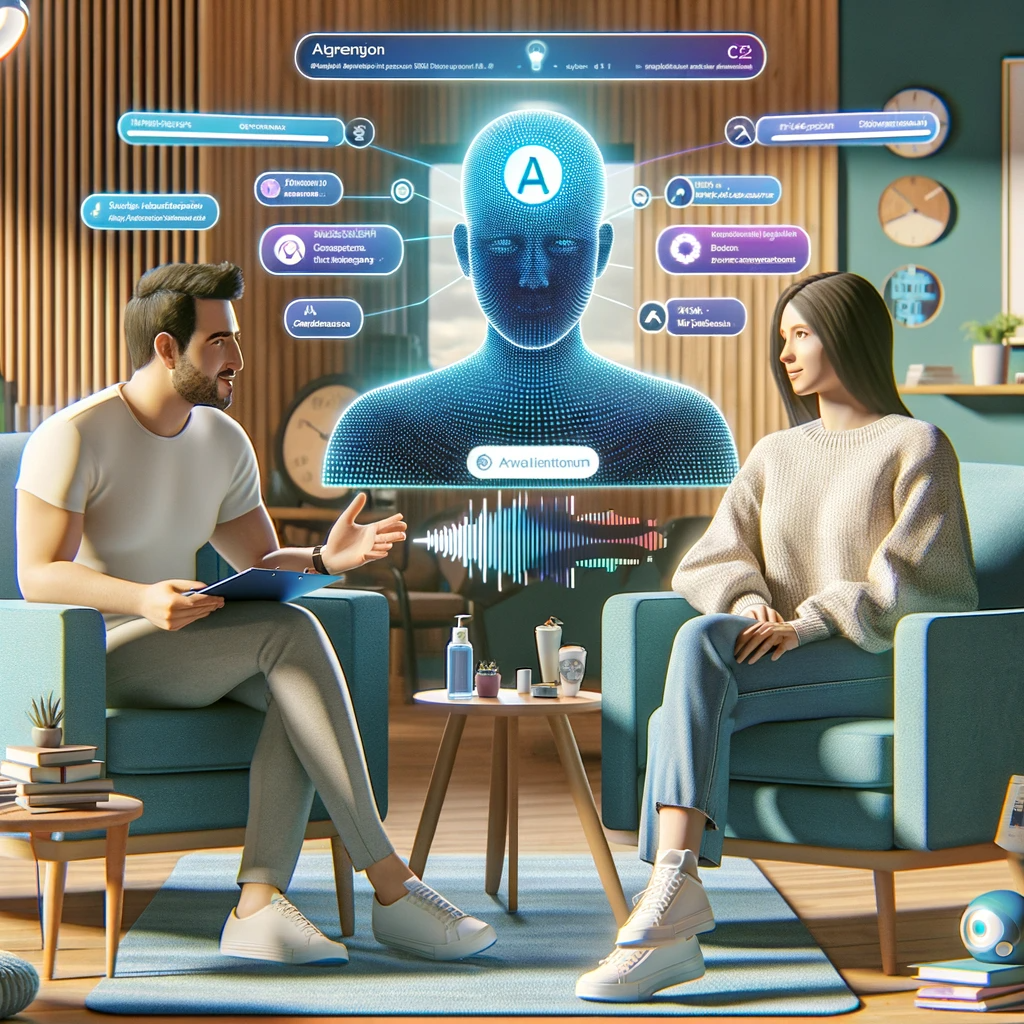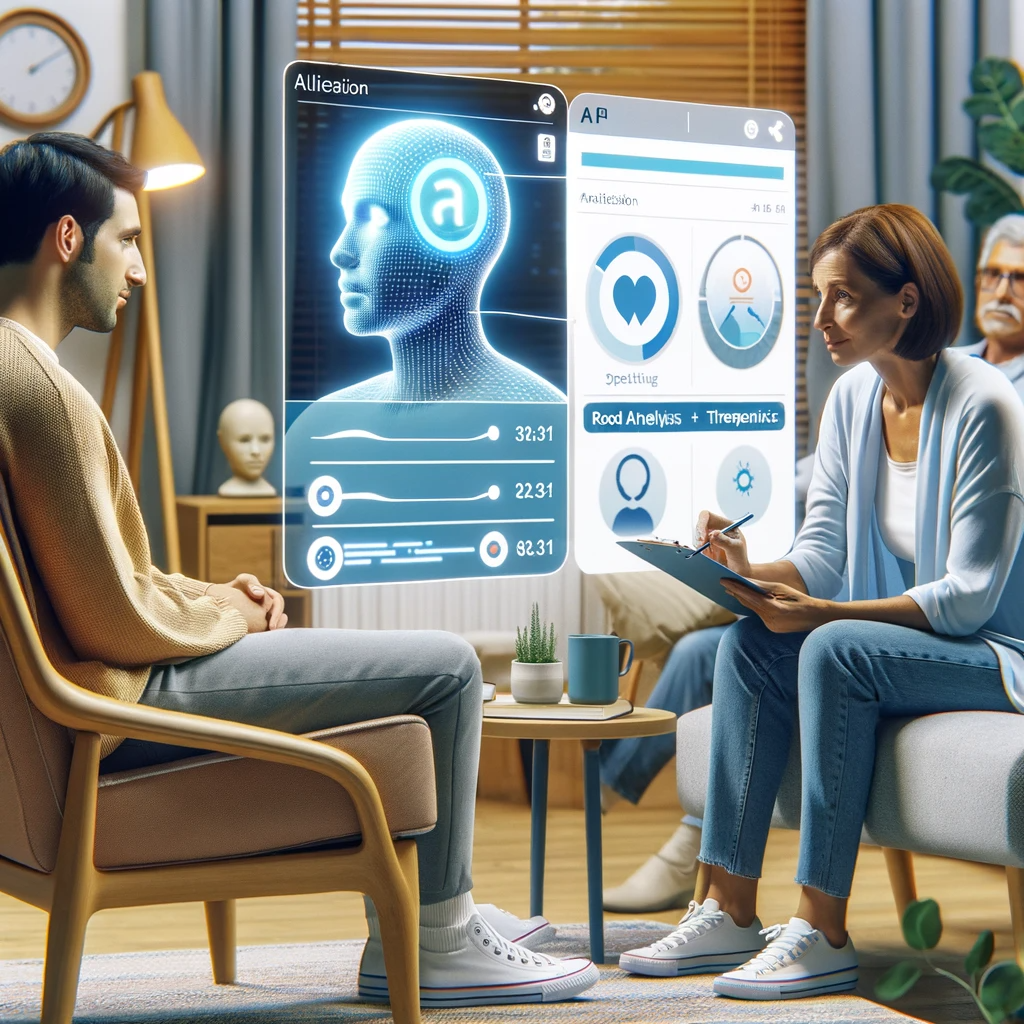Mental health, a crucial component of overall well-being, has increasingly become a focus of global health discussions. In today’s fast-paced world, mental health issues are more prevalent than ever, affecting millions worldwide. However, diagnosing and treating these conditions presents numerous challenges. Mental health diagnosis often relies on subjective assessments, leading to concerns about accuracy and consistency. Furthermore, treatment approaches vary significantly, and access to quality mental healthcare remains a hurdle for many.
In this context, Artificial Intelligence (AI) emerges as a potential game-changer. With its ability to process vast amounts of data and recognize patterns beyond human capability, AI offers new avenues for improving mental health diagnostics and treatment. The central question of this article is: Can AI technologies effectively enhance mental health diagnosis, personalize treatment plans, and provide reliable support systems?
This article will explore AI’s role in mental health care, beginning with an overview of the current state of mental health diagnostics and treatment. It will then delve into AI’s applications in mental health diagnostics, its potential in creating personalized treatment plans, and its role as a support system. Additionally, the article will address the challenges and ethical considerations associated with using AI in mental health care, concluding with a look at future prospects and implications. Through this exploration, we aim to understand the potential of AI in transforming mental health care and improving patient outcomes.

The Current State of Mental Health Care
Traditional methods in mental health diagnosis and treatment have predominantly relied on subjective assessments through clinical interviews and self-reported symptoms. Mental health professionals use these evaluations, along with established diagnostic criteria, to identify and treat a variety of mental health disorders. However, these approaches can often be limited by biases, variability in professional judgment, and the patients’ ability to accurately report their symptoms.
One of the major challenges in current mental healthcare is the lack of objective, quantifiable measures for diagnosis, leading to potential misdiagnoses or delayed treatment. Accessibility to mental health services is another significant issue, with many individuals facing barriers such as cost, stigma, and a shortage of mental health professionals.
Over the years, there have been advancements in mental health care, including the development of various therapeutic modalities and medications. Despite this progress, there remains a pressing need for innovation, particularly in improving diagnostic accuracy, treatment personalization, and accessibility to care.
AI in Mental Health Diagnostics
Artificial Intelligence (AI) is beginning to make significant inroads in the field of mental health diagnostics. AI systems, through machine learning algorithms, are increasingly used to analyze patterns in behavior, speech, and even social media activity to identify signs of mental health issues. These systems can process vast and complex datasets, potentially uncovering subtle indicators of mental health conditions that may be missed by human clinicians.
AI’s capabilities in predictive analytics are particularly promising. By analyzing patterns and trends in data, AI can predict the onset or worsening of mental health conditions, enabling early intervention. Several case studies exemplify the successful application of AI in mental health diagnostics. For instance, AI tools have been developed to analyze speech patterns to detect depression or anxiety, and machine learning models have been used to predict the likelihood of someone developing a mental health condition based on their electronic health records.
AI in Personalized Treatment Plans
AI plays a crucial role in personalizing mental health treatment plans. AI algorithms can analyze a patient’s data, including medical history, response to previous treatments, and lifestyle factors, to suggest customized therapy and medication plans. This personalized approach can significantly improve treatment efficacy by considering the unique aspects of each patient’s condition and circumstances.
Moreover, AI’s ability to continuously monitor patient data enables dynamic adjustment of treatment plans. Wearables and mobile apps equipped with AI can track various parameters like sleep patterns, physical activity, and mood changes, providing real-time insights into a patient’s condition. This ongoing monitoring allows for timely modifications to treatment strategies, ensuring they remain effective and responsive to the patient’s needs. The effectiveness of AI in these roles showcases its potential to revolutionize mental health treatment, making it more adaptive, responsive, and personalized than ever before.

AI as a Support System
AI’s emergence as a support system in mental health care is reshaping the accessibility and continuity of care. Virtual therapists and mental health apps powered by AI algorithms offer readily accessible support, especially beneficial for those who may face barriers in seeking traditional therapy. These AI systems can provide immediate, personalized feedback and coping strategies, making mental health support more accessible than ever before.
These AI-driven tools are especially useful for continuous monitoring and care. They can track mood changes, provide therapeutic exercises, and even alert healthcare providers if a patient’s condition appears to be deteriorating. Innovations in this space include chatbots that use natural language processing to mimic conversation, offering an empathetic ear to patients in need of immediate support.
Beyond offering basic support, some AI applications are designed to enhance patient engagement and adherence to treatment plans. Gamified therapy apps and interactive AI-driven activities can make the process of therapy more engaging, encouraging consistent participation from patients. These innovative approaches represent a significant step forward in mental health care, providing support that is not only accessible but also engaging and responsive to
Challenges and Ethical Considerations
Implementing AI in mental healthcare, however, comes with its set of challenges and ethical considerations. One primary concern is the accuracy and reliability of AI diagnoses and recommendations. Ensuring these systems are thoroughly vetted and validated for clinical use is crucial to avoid potential misdiagnoses or inappropriate treatment suggestions.
Privacy and data security are paramount, given the sensitive nature of mental health information. Safeguarding patient data against breaches and ensuring confidentiality is a significant challenge in deploying AI systems. Moreover, the balance between AI and human interaction in therapy raises ethical questions. While AI can supplement care, it should not replace the human empathy and understanding crucial in therapy.
Additionally, there’s the question of AI decision-making in treatment. The transparency of AI algorithms and the degree to which they influence treatment decisions must be carefully managed to maintain trust and efficacy in treatment.
Future Outlook and Conclusions
Looking ahead, AI is poised to bring transformative changes to mental healthcare. Future advancements may see even more sophisticated AI algorithms capable of nuanced understanding of mental health conditions and tailoring highly specific treatment plans. Long-term, AI has the potential to significantly improve mental health diagnostics and treatments, making them more accessible, personalized, and effective.
AI’s role in mental healthcare is evolving into one of a valuable tool that complements and enhances traditional therapeutic practices. It holds the promise of bridging gaps in care, offering continuous support, and contributing to overall better patient outcomes in mental health.

Conclusion
In summarizing AI’s potential in mental healthcare, it’s evident that AI offers promising solutions to many challenges in mental health diagnosis and treatment. Its capabilities in providing accessible care, personalized treatment plans, and continuous support are particularly noteworthy. However, balancing these technological innovations with the indispensable human element of therapy is key.
As AI continues to integrate into mental healthcare, it brings both opportunities and challenges. The future of AI in this field poses several thought-provoking questions: How will AI continue to transform mental health care practices? Can AI maintain the delicate balance between offering support and ensuring the privacy and security of sensitive patient data? And how will AI complement the human aspects of therapy to enhance patient outcomes? The answers to these questions will shape the trajectory of mental health care in the AI era.
